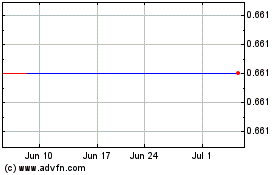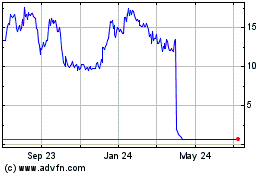Acorda MS Drug To Get Improved Reimbursement From UnitedHealth
October 12 2010 - 3:20PM
Dow Jones News
UnitedHealth Group Inc. (UNH) plans to increase the
reimbursement status of Acorda Therapeutics Inc.'s (ACOR) multiple
sclerosis drug Ampyra, a positive development in an area that has
been a concern for Wall Street.
The move, effective at the beginning of next year, will lower
the out-of-pocket costs to patients taking the drug, typically used
in addition to more mainstream MS therapies, which are among the
most expensive drugs on the market. Ampyra, approved in January, is
a twice-daily pill that improves walking in MS patients and costs
about $18 a pill, or $13,000 a year.
The reimbursement systems at most insurers have three tiers. The
top tier, or tier 1, being the cheapest option consisting mostly of
generics. The next tier is for preferred brands, while tier 3 is
generally non-preferred drugs with higher co-pays that can
discourage usage.
UnitedHealth initially placed Ampyra on tier 3 but decided to
move it up to tier 2 "because of the uniqueness of the drug, it
being a new chemical entity and having new indications that aren't
met by any other medications," said Randy Falkenrath, who leads the
specialty pharmacy business at UnitedHealth.
The move generally decreases the patient copay to $30 a month
from $60. From January to July, 700 UnitedHealth patients have had
at least one prescription of Ampyra filled, Falkenrath said.
The company provides pharmaceutical benefits to 14 million
people, with about 13,000 members being treated for MS.
"This is a particularly big milestone for us," Acorda Chief
Executive Ron Cohen said. "Particularly with Wall Street and
everyone being so focused on reimbursement for any new drug these
days."
Aside from lowering the co-pay, Cohen notes that the decision
sends a message that UnitedHealth believes the drug is important
and should be available to patients. He declined to speculate on
whether more insurers could make similar moves, but said the
decision bolsters its case with other companies.
The reimbursement hurdles for Ampyra, which had about $30
million in second-quarter sales, has been a concern among analysts
since its launch.
A recent survey by J.P. Morgan estimated that 56% of health
plans covering use of the drug have placed it on tier 3. The firm
said that 40% of plans required patients to conduct a timed walk
when starting the drug, followed by subsequent walks to prove that
the drug is working. Such a strict measurement could make it harder
to continue use.
UnitedHealth doesn't have such a requirement at this time, but
it does monitor patients to see if the drug is working and
continues to be safe by having them check-in after the first six
months and then yearly. Before beginning treatment, patients are
required to have prior authorization that Ampyra is appropriate for
them.
Cohen said a "significant minority" of insurers have a walking
requirement, which he believes is unreliable because the effects of
MS can vary over even a short period.
"We are spending all of our effort on educating those plans,"
Cohen said.
Treatments for MS itself aim to slow the disease, which is
marked by the body attacking its own central nervous system. Ampyra
doesn't actually treat the disease but is believed to help conduct
the electric signals that travel through damaged nerves.
The rising cost of drugs has given insurance companies good
reason to scrutinize new treatments, especially in MS. Drugs for
the disease make up about 10% of United Health's specialty drug
spending and the per-patient cost is growing. Over the past three
years, prices for MS drugs have grown by about 65%, Falkenrath
said.
While the most popular MS drugs are on tier 2, the insurer has
been tough on some treatments. It recently decided it wouldn't
cover Extavia, sold by Bayer AG (BAYRY, BAY.XE) and Novartis AG
(NVS, NOVN.VX) and approved last year, after concluding it is no
better than current therapies.
As more MS treatments are expected to hit the market in coming
years, they are also expected to bring down prices.
"I do think we will be in a much better position," said Timothy
Heady, chief executive of UnitedHealth Pharmaceutical Solutions.
"Our experience tells us that we will be able to put some pressure
on those price points."
-By Thomas Gryta, Dow Jones Newswires; 212-416-2169;
thomas.gryta@dowjones.com
Acorda Therapeutics (NASDAQ:ACOR)
Historical Stock Chart
From Mar 2024 to Apr 2024

Acorda Therapeutics (NASDAQ:ACOR)
Historical Stock Chart
From Apr 2023 to Apr 2024
